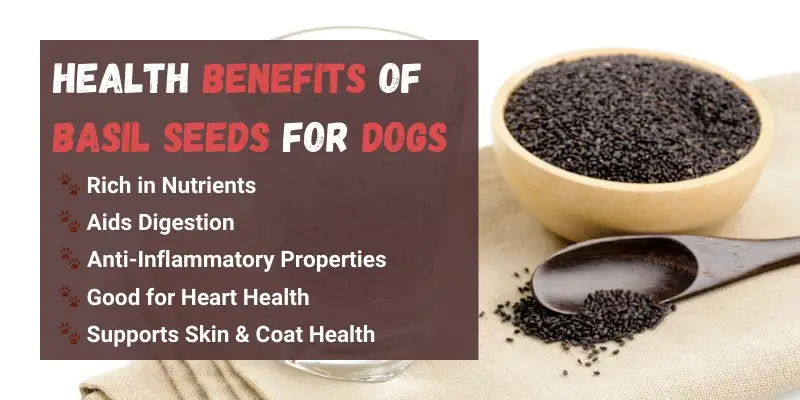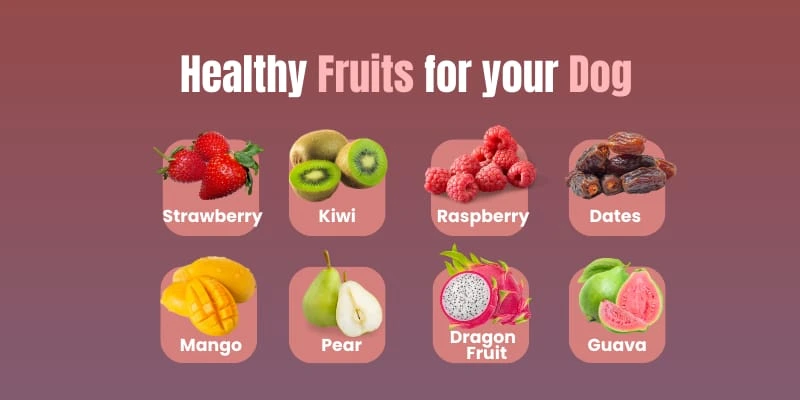Can a Dog Eat Basil Seeds? Are Basil Seeds Safe for Dogs?
Published: 22 Feb 2025
Hello, puppy people!
We all want the best for our dogs, from nutritious meals to healthy treats. But when it comes to sharing our superfoods—like basil seeds—questions arise: “Can dogs eat basil seeds?” Yes, but only when served safely and in moderation.
In this guide, I, Dr. Musky Abal, a licensed veterinarian with years of expertise in canine nutrition, will provide you with professional insights into feeding basil seeds to dogs. You’ll learn about their benefits, potential dangers, and the safest ways to introduce them into your dog’s diet.
Are Basil Seeds Safe for Dogs?
Yes, basil seeds are safe for dogs when served in moderation and with proper preparation. These tiny black seeds, also known as Sabja seeds or Tukmaria, come from the sweet basil plant (Ocimum basilicum). They are packed with beneficial nutrients, including dietary fiber, omega-3 fatty acids, and essential vitamins and minerals such as Vitamin K, Calcium, and Magnesium. When introduced correctly, basil seeds can be a nutritious addition to your dog’s diet.
Health Benefits of Basil Seeds For Dogs🐶🌿
Basil seeds offer several health benefits for dogs, including:
Digestive Health
The high fiber content in basil seeds aids digestion and helps regulate bowel movements, potentially relieving constipation.
Healthy Coat and Skin
Basil seeds are rich in omega-3 fatty acids, which contribute to a shiny coat and maintain healthy skin.
Bone and Muscle Health
They contain Vitamin K, which supports bone health, along with Calcium and Magnesium, which are vital for strong bones and proper muscle function.
Hydration
When soaked in water, basil seeds form a gel-like texture that can help keep your dog hydrated, especially during hot weather.
Support Weight Management
The fiber in basil seeds can help dogs feel fuller for longer, which could benefit weight control.

How Much Basil Seeds Should a Dog Eat? 🐶🍃
When feeding basil seeds to your dog, portion control is crucial. Here’s a general guideline to ensure safe and healthy serving sizes:
- Small Dogs (up to 20 lbs): Start with 1/4 teaspoon of soaked basil seeds.
- Medium Dogs (20–50 lbs): Offer up to 1/2 teaspoon.
- Large Dogs (50+ lbs): You can provide up to 1 teaspoon.
How Often Can Dogs Eat Basil Seeds?
Basil seeds should not be a regular part of your dog’s diet. Instead, serve them as an occasional treat, perhaps once or twice a week at most. Regular or excessive consumption can cause digestive issues.
How to Serve Basil Seeds to Dogs: Cooked or Raw? 🍽️🐶
When it comes to feeding basil seeds to dogs, preparation matters to ensure safety and maximize benefits:
✅ The Best Way: Soaked Basil Seeds
- Always soak basil seeds in water for 15–30 minutes before serving. The seeds will absorb water and develop a gel-like coating, making them safer and easier to digest for dogs.
- Mix the soaked seeds into your dog’s regular food or sprinkle them over a dog-friendly treat.
❌ Avoid Feeding Raw or Dry Basil Seeds
- Dry basil seeds can expand rapidly when they come into contact with moisture. If swallowed dry, they may swell in your dog’s throat or stomach, posing a choking or digestive risk.
- Raw seeds are more challenging to digest and can cause bloating, gas, or stomach discomfort.
🍲 Can You Cook Basil Seeds for Dogs?
- Cooking basil seeds is not necessary. Soaking is sufficient to make them safe and beneficial for your dog. Cooking might reduce some seeds’ nutritional value and change their texture.
Risks of Feeding Basil Seeds to Dogs
While basil seeds offer certain health benefits, they also come with potential risks that every dog owner should consider:
Risk of Obstruction:
Soaked basil seeds develop a gel-like coating that can become sticky. If a dog, especially a small breed, eats too many, this gel mass could cause an intestinal blockage, resulting in vomiting, constipation, or abdominal pain.
Interaction with Medications:
Basil seeds can affect blood sugar levels due to their high soluble fiber content, which slows glucose absorption and prevents blood sugar spikes. However, for diabetic dogs or those with blood sugar issues, even this mild effect may be significant. If your dog is on medications for diabetes or other metabolic conditions, consult your veterinarian before offering basil seeds.
Overloading on Fiber
Although fiber is beneficial, overconsumption could cause digestive issues like diarrhea, bloating, and stomach discomfort, especially in dogs with sensitive stomachs.
Allergic Reactions:
Although rare, some dogs may be allergic to basil seeds. Watch for symptoms like itching, swelling, hives, or gastrointestinal distress after introducing basil seeds into their diet.
- While basil seeds offer supplementary benefits, they should not replace a well-balanced, nutritionally complete dog food. Ensure your dog’s primary diet meets all their nutritional needs, with basil seeds being an occasional treat rather than a regular staple.
- Before adding basil seeds to your dog’s diet, consult your veterinarian—especially if your dog has existing health conditions. Dogs with diabetes, gastrointestinal issues, or allergies may require special consideration. A vet can provide tailored advice based on your dog’s age, size, breed, and overall health.
- Introduce basil seeds slowly and in small amounts, and observe your dog for symptoms of allergic reactions like digestive upset, itching, or behavioral changes after introducing a new food.
This careful approach ensures that basil seeds contribute positively to your dog’s health without compromising their well-being. 🐶❤️
Can Puppies Eat Basil Seeds?
Puppies can eat basil seeds, but extra caution is needed! Their developing digestive systems are more sensitive than adult dogs, and basil seeds should be introduced slowly and in tiny amounts.
Can Dogs Eat Basil Seed Smoothies?
Many common smoothie ingredients—such as grapes, chocolate, certain nuts, artificial sweeteners (especially xylitol), and dairy products—can be toxic or hard for dogs to digest.
Suppose you’d like to share a smoothie treat with your pup. In that case, it’s important to ensure that all ingredients in the smoothie are safe for dogs, including safe fruits (like blueberries, strawberries, or bananas), plain, unsweetened yogurt (if your dog tolerates dairy), and a small amount of soaked basil seeds.

Conclusion: Can Dogs Eat Basil Seeds? 🐶🌿
Yes, dogs can enjoy basil seeds safely as an occasional treat! When served in moderation, these tiny seeds offer digestive benefits, nutrients, and fiber, contributing to your dog’s overall health. However, it’s essential to introduce them gradually and consult a veterinarian before giving any new food to dogs.
📢 Have you tried feeding basil seeds to your dog? Please share your experiences and let us know how your furry friend reacted! Your stories could help fellow puppy people make informed choices for their beloved pets.
The information provided in this article is for educational purposes only and is not a substitute for professional veterinary advice. Every dog is unique, and their dietary needs and health conditions may vary. Always consult your veterinarian before introducing new foods.
FAQs:
Let’s discuss some frequently asked questions about dogs and basil seeds.
If your dog eats too many basil seeds, monitor them closely for signs of digestive upset. Provide plenty of water, and if your dog shows persistent or severe symptoms, contact your veterinarian immediately for guidance.
Yes, you can mix basil seeds with your dog’s regular food, but make sure to soak them in water before mixing in food to avoid choking hazards.
If your dog has kidney problems, it’s essential to consult your veterinarian before introducing basil seeds into their diet. Basil seeds contain certain minerals, like calcium and magnesium, which may affect kidney function. A vet can provide personalized advice based on your dog’s specific health needs and help you avoid any complications.

- Be Respectful
- Stay Relevant
- Stay Positive
- True Feedback
- Encourage Discussion
- Avoid Spamming
- No Fake News
- Don't Copy-Paste
- No Personal Attacks

- Be Respectful
- Stay Relevant
- Stay Positive
- True Feedback
- Encourage Discussion
- Avoid Spamming
- No Fake News
- Don't Copy-Paste
- No Personal Attacks





